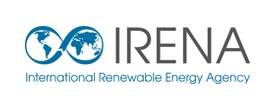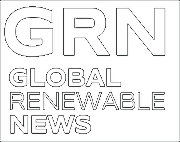By Vanora Bennett
What can multilateral development banks do to better develop sustainable, accessible, resilient and quality infrastructure for emerging countries, especially in the wake of the global coronavirus epidemic? Can MDBs be the glue that holds together the public and private sectors in a move towards a greener, more resilient future for all?
These were the big questions for this year's Global Infrastructure Forum 2020, hosted virtually by the EBRD for three days this week. It drew thousands to hear nine panels of experts from the infrastructure community, governments, investors, lenders, private and public sector organisations, and from MDBs deliberating on the future.
The annual GI Forum has met four times since 2016, when it was created as part of planning for a new global framework for financing sustainable development by aligning all financing flows and policies with economic, social and environmental priorities - the aim being to achieve the UN Sustainable Development Goals (SDGs) by 2030. This year their work has been complicated by Covid-19.
"In the context of Covid-19, the role of international developers in helping recovery is more critical than ever," Nandita Parshad, Managing Director of the EBRD's Sustainable Infrastructure Group (SIG), told the opening session.
"There is consensus in both developed and developing markets that infrastructure investment holds the key to global economic recovery. Pre-Covid, the estimate was of a global infrastructure investment need of US$ 6.3 trillion per year up to 2030 just to support critical growth and development. With Covid-19, these numbers have just increased exponentially."
Yet, she added, with the world already falling far short of that spend before the pandemic, and the other looming crisis - climate change - also on the horizon, countries are now so stretched by the health crisis that they lack capacity and resources to make the changes required to bring economic recovery and battle climate change.
So "how can we stimulate economies sustainably, without compromising on the SDGs and the commitment to the Paris agreement?"
"There is a role for MDBs now, more than ever, to both provide the capital needed for sustainable investment as well as to mobilise and crowd in the private sector," she added.
This theme was teased out through the event, in which the EBRD led three panels. Acknowledging the scope of the endeavour, the President of another multilateral development bank, the Asian Infrastructure Investment Bank's (AIIB) Jin Liquin, delivered a recorded online message thanking the EBRD for organising the event.
He said: "Covid-19 has wreaked havoc with the global economy and has wrought incredible pain and suffering the world over. The crisis exposed our weaknesses and shed light on the gaps in crucial areas of our economic and social development, particularly in healthcare.
"With concerted efforts, MDBs have provided financing close to $100 billion since January to help our members under difficult times. As we look to the future, we must recognise that a post-Covid-19 world will present unforeseen challenges. However it is clear that MDBs will play a crucial role if we are to drive a sustainable recovery from this crisis."
This theme was teased out through the event, in which the EBRD led three panels.
At the opening session, "Building a Better Future," panellist and EBRD Chief Economist Beata Javorcik talked about how emerging markets would be better placed post-Covid to attract more foreign direct investment and a bigger share of the global export market if they made themselves more attractive to foreign investors: "and that means infrastructure spending," particularly on digital and transport.
"The pandemic has thrown all of us into this giant experiment with remote work, and all indications suggest that remote work will continue. Again this is an opportunity for emerging markets to export services and skilled labour, but without digitalisation and proper infrastructure it will not be possible."
"Here, making infrastructure green will matter a great deal because sooner or later we are likely to see carbon adjustment taxes being collected at the border in major export countries. Having access to green energy will help countries stay ahead of the game and make them more attractive as a supplier to major world markets," she added.
She identified three priorities for MDBs working in infrastructure investment. "First, facilitating access to finance, both directly and through the mobilisation of the private sector. Second, MDBs should be steering, nudging, pushing countries towards green investment in infrastructure. Third, we should be helping countries build institutions that increase the quality of public service."
The "Green Cities - Smart Solutions" session moderated by the EBRD's Head of Infrastructure Europe, Sue Goeransson, discussed how digital solutions could reach green and sustainability goals.
The recent crisis has further stressed that urban improvements should be underpinned by smart technology, as smarter cities have been able to mitigate the pandemic quicker and more efficiently than others.
As Ms Goeransson said, "more than three-quarters of the world's infrastructure vulnerable to climate change can be found in cities. Cities are at the forefront of Covid-19. Cities will also be at the forefront of the recovery to build back better."
Asked what development banks can do to support cities, panellist Leslie Maasdorp of the New Development Bank talked of the need for joined-up urban planning "away from piecemeal solutions".
He said: "We need coordination between national development banks and regional development banks as well as MDBs. Each of us MDBs work with many others but we function as individual enterprises. We can do more for seamless communication."
Discussing the growing role of renewable energy in the power mix, and, specifically, of the need in a future mostly powered by clean renewable energy for "Smart and Green Grids" - the panel name - to manage multiple intermittent power sources, Harry Boyd-Carpenter, EBRD Head of Energy, EMEA Region, identified the role of development banks in fostering tomorrow's clean energy future as, first, to lend money for it.
There are two more tasks for development banks, he added. "One is to work with regulators. The other is that we need to focus on where concessional finance can be catalytic. For storage in networks we should be saying, let's deploy concessional finance to cover the first costs and demonstrate the usefulness of them."
EBRD policy already addresses this issue, he added. "We've been clear for years that our focus is on these two tracks - renewables and smart networks, part of a broader commitment to being green."
"Financing isn't the challenge - it's tariffs. Networks are regulated business, and tariffs are awarded by the regulator and paid for by consumers. You need consumers willing to pay, and sure the money is being spent right, and governments willing to tolerate higher tax - not easy things but necessary pre-conditions. Then I think we can get somewhere."









